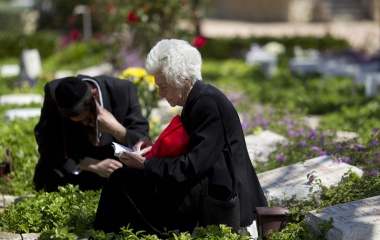
In our last post we discussed the fickleness of memory and how and when one may write down testimony for future use in a court of law. The last Mishna of the second chapter of Ketubot discusses under what circumstances we may rely on the testimony and memory of a minor. It is a legal assumption that minors lack the maturity to be responsible decision makers.They lack critical thinking skills and in their naivety, innocence and lack of worldly experience are unable to fully process what they see. We are thus unable to accept their testimony in a court of law, not because we do not believe them - in fact children are generally much more honest than adults, often to the great embarrassment of their parents - but because they lack the broad perspective and insight required to see the whole picture.
Truth be told this is not limited to minors. The reason for example (professional) gamblers are invalidated from giving testimony is that “they are not involved in the settlement of the world” (Sanhedrin 24b). Living in a “fantasy world” (there is a reason casinos have no clocks) they lack perspective making it risky to rely on their testimony[1].
At the same time as we mature we can often recall events of our youth with a much better understanding of what actually transpired. What we may not have understood at the time may actually become clearer with the passage of time - though there is the risk of our adult minds influencing our childhood experiences. We all know how stories of our youth often become embellished when the adult in us retells it. This need not be intentional but it is real nonetheless.
This complexity of our memory may help explain the Mishna’s (Ketubot 28a) teaching that on occasion we can rely on the adult testimony of events that transpired when one was a minor. This is so in cases of rabbinic law and where there is good reason to believe the minor. Such would be the case where the minor testifies that a signature on a document is that of his father, teacher or brother. Rabbinic law demanded that before relying on a document we verify the validity of the signatories, either by comparing it to other documents the person may have signed, or by testimony of witnesses. As we are to assume that most documents are signed by hones people authenticating the signatures was a rabbinic stricture and hence we could rely on the testimony of a minor[2].
Our Mishna finds its way into Masechet Ketubot due to a rather unbelievable debate between ex-spouses as they divorce. The wife claims she was a betulah, virgin, when she married whereas the husband claims she had been previously married. As is often the case in divorce debates revolve around money as the value of the ketuba that the husband must pay upon divorce (alimony) is twice as high for a woman who was not previously married than for one who was. The simple way to determine who is telling the truth would be to check the ketuba but in this case such is lost. The opening Mishna of the second chapter of (Ketubot 15b) rules that if there are witnesses that the woman came to the chupah with her hair uncovered or according to Rav Yochanan ben Bruka even if candies were handed out at the wedding, such would constitute evidence that the woman was marrying for the first time and is entitled to the higher ketuba amount[3]. The Mishna teaches that we may rely on the testimony of a minor that in fact the woman did have her hair uncovered at the wedding and is thus entitled to the full value of a ketuba. As the Gemara explains “since most woman who marry are virgins[4] their testimony is [merely] revealing that which is ‘known” (Ketubot 28a).
As we near Pesach let me note the comment of the Tosafists (Ketubot 28a, s.v. Eilu Neemanin), that regarding bedikat chametz we can believe a minor, even while the child is still a minor, that he or she has properly searched for chametz. (It would do little good to say we can believe them (or her) three years hence.) Bedikat chametz is required only by dint of rabbinic law - according the Torah law bittul chametz, nullification of chametz, would be sufficient. Furthermore, the child's believablility relies not so much on the child's memory but on his action. While we may not trust a minor as to what he saw we can believe a minor who testifies as to what they did and let the adults figure out the implications of such.
[1]The broad perspective necessary to render proper decisions can be seen in the almost impossible conditions necessary to be a member of the Sanhedrin (Sanhedrin 17a); mastery of Torah and much of general knowledge, familiarity with many languages i.e. cultures, and impeccable character. They even must have children “in order that they should be merciful” (See Rambam Laws of Sanhedrin, chapter 2). Such a court has the right to reject the testimony of witnesses even lacking evidence of wrongdoing by the witnesses (Shevuot 31a). Their gut may tell them that this well-meaning, honest adult lacks the necessary involvement with the world to give fully accurate testimony.
[2] Many commentaries assume that these examples are specific as the child would be familiar with their signatures, but we could not rely on their testimony regarding others (See Shulchan Aruch, Chosen Mishpat 35:4).
[3] The burden of proof falls on the woman as she is the one trying to extract more money from the husband and Jewish law states that “one who wants to remove [money] from one’s friend upon him is the burden of proof” (Bava Kama 46a). This would be doubly so in a case such as ours where the woman negligently did not preserve her ketuba.
[4] Sadly this is no longer the case - though in practice even if the woman is not a virgin but is marrying for the first time we write “betulah” in the ketuba. A husband may agree to pay the value of a ketuba of a betulah even to one who is not.



